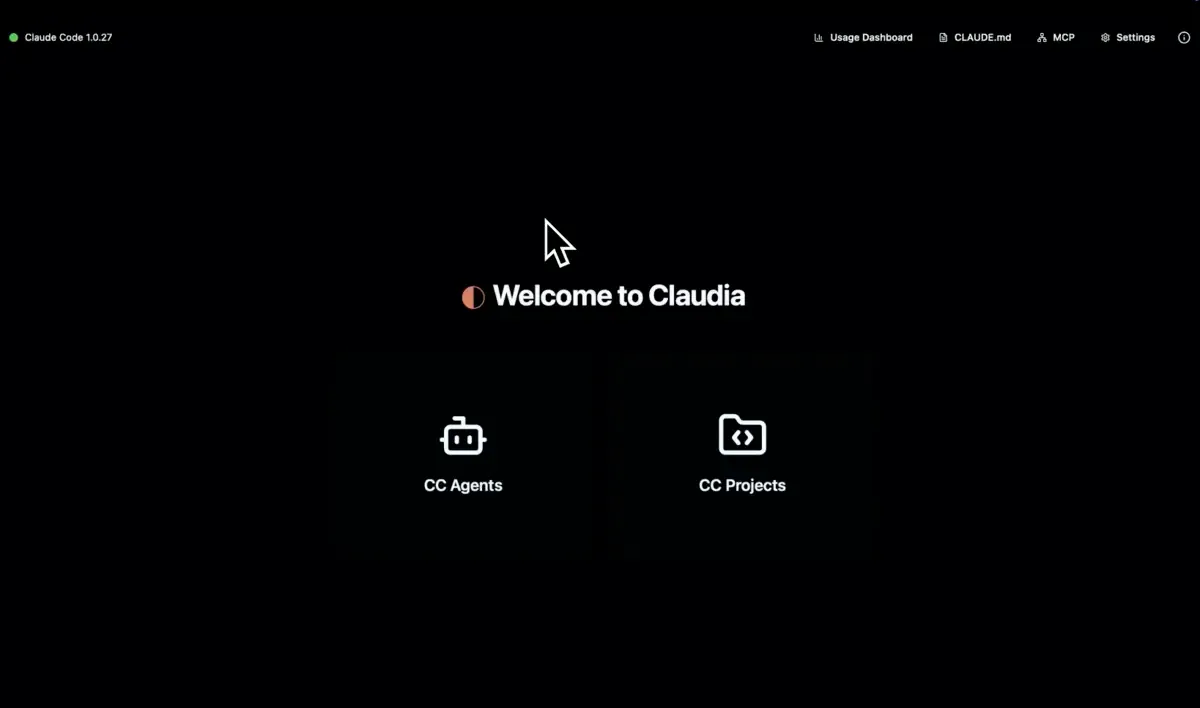Your browser already runs hostile code. Could it sandbox AI agents too?
Google's Paul Kinlan argues browsers' 30-year security model could sandbox AI agents without container overhead. Here's how Co-do proves the concept.
Developers who love Claude Code but hate terminals now have an open-source solution. Claudia transforms AI coding into a visual desktop app with custom agents, project management, and sandbox security—no command line required.

💡 TL;DR - The 30 Seconds Version
🖥️ Claudia wraps Claude Code in a desktop GUI that runs on Windows, macOS, and Linux without terminal commands.
🤖 Users can create unlimited custom AI agents with specialized prompts for testing, refactoring, or security scanning tasks.
🔒 Each agent runs in sandboxed environments with fine-grained permissions using seccomp on Linux and seat belt on macOS.
📊 Built-in dashboard tracks API usage and costs in real-time with detailed breakdowns by model and project.
⏱️ Timeline feature creates checkpoints during coding sessions with one-click rollback and visual diff viewing.
🔧 Installation requires building from source with Bun and Rust—no prebuilt executables available yet.
For developers who love Claude Code but hate living in the terminal, an open-source solution has arrived. Claudia transforms Anthropic's command-line AI coding assistant into a full desktop application with point-and-click simplicity.
The tool addresses a common complaint about Claude Code: many developers want the power but find the terminal interface intimidating. Claudia solves this by wrapping Claude Code in a polished graphical interface that runs on Windows, macOS, and Linux.

Built with Tauri 2, Claudia automatically detects existing Claude Code projects and displays them in an organized dashboard. Users can browse projects visually, search through sessions instantly, and resume past coding work with full context intact. No more digging through command history or remembering cryptic file paths.
The standout feature is custom agent creation. Users can build specialized AI assistants for specific tasks—a TypeScript refactoring agent, a unit testing specialist, or a vulnerability scanner. Each agent gets its own system prompt and can be deployed across different projects.
These agents run in sandboxed environments with granular permissions. On Linux, Claudia uses seccomp for isolation. macOS gets sandbox protection through the built-in seat belt system. Users can create permission profiles and monitor violations in real-time, adding enterprise-grade security to AI coding workflows.
Claudia introduces checkpoint functionality that works like version control for AI sessions. Developers can create savepoints during coding, then jump back or fork sessions with one click. A visual timeline shows the progression of work, and a built-in diff viewer highlights changes between checkpoints.
This solves a major pain point with AI coding: experimenting without fear of losing progress. Instead of carefully crafting prompts to avoid mistakes, developers can explore boldly and rollback when needed.
The dashboard provides session history with timestamps and metadata. Users can track API usage and costs in real-time, with detailed breakdowns by model, project, and time period. Charts show usage patterns and spending trends—useful for teams managing AI budgets.
For teams running Model Context Protocol servers, Claudia includes a built-in MCP manager. Users can add servers through the interface, import configurations from Claude Desktop, and test connections before deployment. No more editing JSON files or troubleshooting terminal commands.
Claudia scans projects for Claude markdown files and provides a built-in editor with live preview. Syntax highlighting makes prompt documentation readable, and the search function finds specific configurations quickly. This helps teams maintain consistent AI workflows across projects.

The main drawback is installation complexity. Claudia requires building from source, which means installing Bun and Rust, cloning the repository, and compiling the project. No prebuilt executables exist yet, though official releases are planned.
The AGPL license also limits commercial use. Companies planning to integrate Claudia into products should review licensing requirements carefully.
Despite being early-stage software, Claudia feels polished. The interface responds smoothly, and core features work reliably. Some advanced features like usage alerts remain incomplete, but the foundation is solid.
The tool represents a significant step forward for AI-assisted development. By removing terminal barriers, Claudia makes Claude Code accessible to developers who prefer visual interfaces. The custom agent system adds workflow automation that command-line tools struggle to provide.
For teams already using Claude Code, Claudia offers immediate productivity gains. Project management becomes visual, session tracking gets easier, and agent customization opens new possibilities. The checkpoint system alone justifies adoption for experimental coding work.
Why this matters:
Read on, my dear:
Q: How much does Claudia cost to run?
A: Claudia is free since it's open source. You only pay for Claude API usage, which varies by model. Claude Sonnet costs about $3 per million input tokens and $15 per million output tokens.
Q: What programming languages does Claudia support?
A: Claudia supports the same languages as Claude Code: Python, JavaScript, TypeScript, Go, Rust, Java, C++, and most other popular languages. The AI can read, write, and debug code in any language.
Q: Can I use Claudia without technical knowledge?
A: Installation requires building from source, which needs some technical skills. Once installed, the GUI is straightforward. You'll need to install Bun and Rust, then compile the application yourself.
Q: How many custom agents can I create?
A: There's no hard limit on custom agents. Each agent gets its own system prompt and can specialize in tasks like testing, refactoring, or security scanning. You can build entire libraries of specialized agents.
Q: Does Claudia work with Claude Desktop or just Claude Code?
A: Claudia wraps Claude Code specifically, not Claude Desktop. It can import MCP server configurations from Claude Desktop but focuses on the command-line coding experience with a graphical interface.
Q: What happens to my data and code?
A: Everything runs locally on your machine. Claudia only sends code to Anthropic's servers when you actively use Claude. Sessions and checkpoints stay on your computer. No data gets stored elsewhere.
Q: How much disk space does Claudia need?
A: The application itself takes about 100MB. Session history and checkpoints use additional space depending on project size. Large codebases with many checkpoints could use several gigabytes over time.
Q: Can teams share custom agents?
A: Yes, agents are stored as configuration files you can share. Teams can create standardized agents for code reviews, testing, or documentation and distribute them across the organization for consistent workflows.
Get the 5-minute Silicon Valley AI briefing, every weekday morning — free.